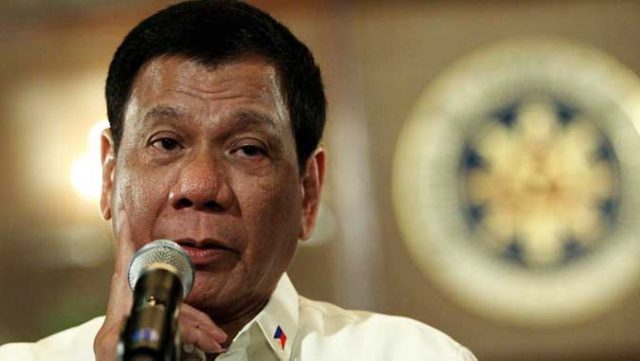Duterte urges Congress to pass remaining tax reform bills

Philippine President Rodrigo R. Duterte on Thursday night urged the Congress to pass his administration’s last two tax reform bills.
In his speech during the ceremonial signing of several bills in Malacañang, Mr. Duterte called on Congress to ensure the passage of two more measures under the Comprehensive Tax Reform Program.
The proposed Real Property Valuation and Assessment Reform Act and the Passive Income and Financial Intermediary Taxation Act are the third and fourth packages of the administration’s tax reform program, respectively. The two measures are still pending at the Senate.
If passed, the third tax reform package will establish a “single valuation base for taxation through the adoption of the schedule of market values of LGUs, and use the updated values as benchmark for other purposes, such as right-of-way acquisition, lease, rental, etc.”
The measure is set to broaden the property-related taxes of the governments and generate more revenue for local government units “without increasing the existing tax rates or devising new tax impositions.”
The House of Representatives passed its version of the bill on third reading in November 2019, while the Senate version is still pending at the committee level.
The proposed passive income law, which aims to simplify the tax structure for financial instruments, was approved by the House in September 2019 but remains at the Senate committee level.
The President also asked the Congress to approve the bills amending the Public Service Act and Foreign Investments Act. The measures, which remain pending at the Senate, were certified as urgent by the President in April.
The bills are part of the list of priority measures identified by the Legislative-Executive Development Advisory Council (LEDAC) to be passed before the Duterte administration ends in mid-2022.
The bill amending the country’s 85-year old public service law will allow full foreign ownership in the public service sector, including transportation and communications, which had been restricted only to Filipino investors.
The measure amending Manila’s foreign investment law seeks to relax restrictions on foreign companies. It lowers the number of direct local hires required for foreign firms.
The President also urged Philippine legislators to approve the bill amending the Retail Trade Liberalization (RTL) Act. The bill, which lowers the required paid-up capital for foreign retail enterprises, was approved by the House and the Senate in March 2020 and May 2021, respectively. The two chambers have yet to reconcile their conflicting versions.
“The Filipino people eagerly await these genuine reforms and may these laws come to fruitful fruition soon,” Mr. Duterte said.
Maria Ela L. Atienza, a political science professor at the University of the Philippines, told BusinessWorld in January that key economic bills usually take a back seat at the Senate because the chamber is “of national” significance, and senators may be considering their chances in the next elections.
The 18th Congress opens its third and last regular session on July 26.
